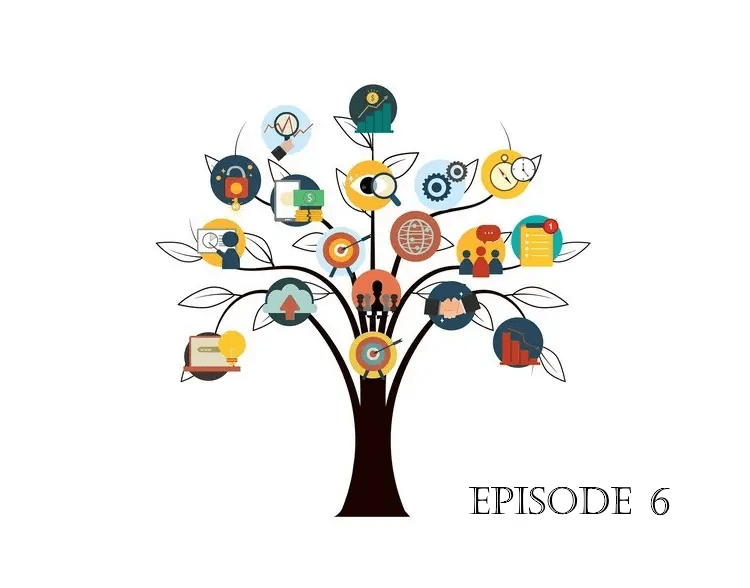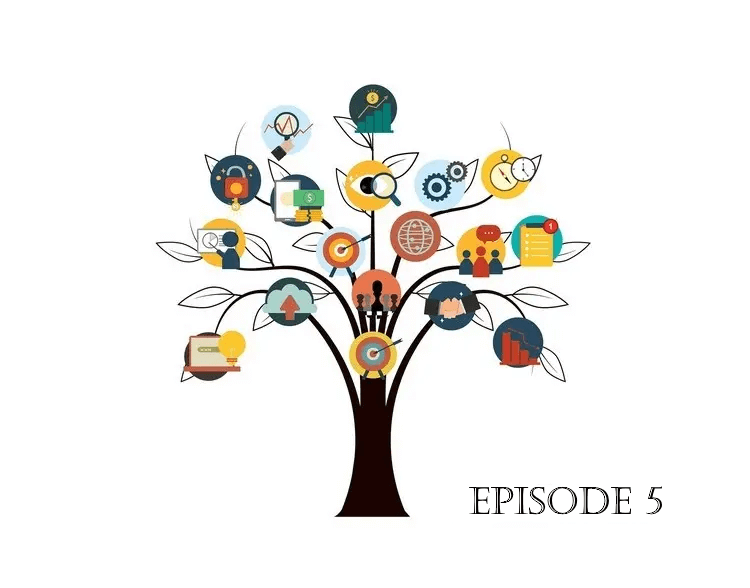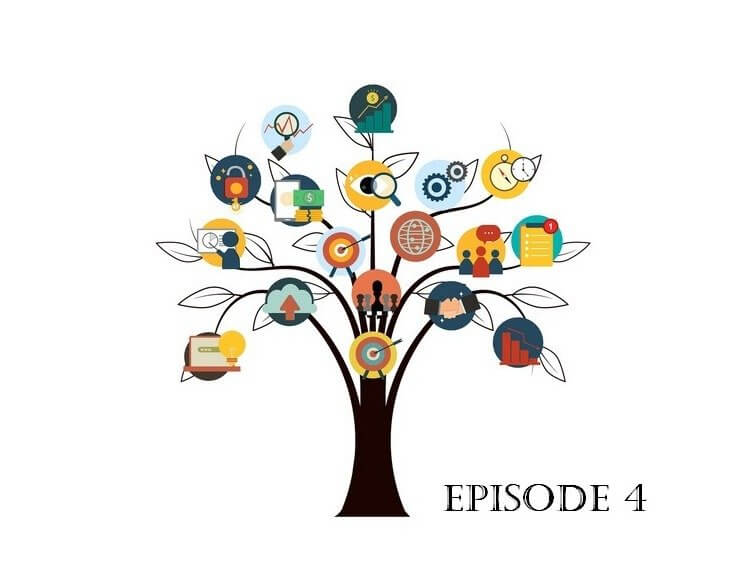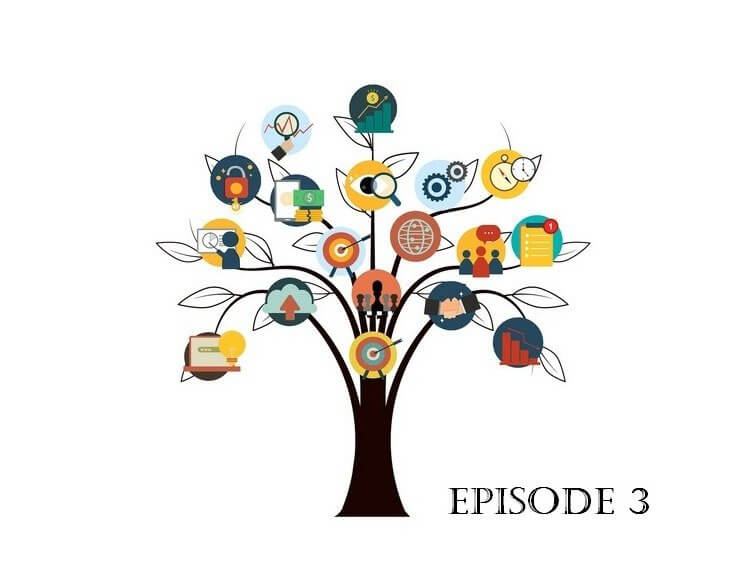
VLC
Relationships have a fairly massive range in terms of types and depth. Spouses, friends, relatives, customers, colleagues, and bosses all share a type of relationship with people they come in contact with. Many times, these relationships can be surface level or can run very deep.
Whether surface level or deep, however, each person displays a certain level of commitment to the relationship. When both people are committed, the relationship has a better chance of being healthy. When one or both people are not committed, the relationship suffers.
If we were to put this into a simple formula, each person is responsible for their 50% of the relationship. It is impossible for a person to commit more than their 50%! When one person tries to make up for the lack of commitment by another, it almost never ends well. Anger and resentment often lead to exhaustion as one person tries in vain to make up for another’s lack of commitment to the relationship. They try to add 60 or 70%, but they can’t.
If this idea frustrates you, take heart! Like so many things in this life, you have only partial control…so take your half and be great! If you are in charge of your 50% of a relationship, make it a work of art.
With your 50%, connect. Understand the other person. Listen. Empathize. Show them you care. Make it so appealing that other person can’t help but want to do a better job with his or her 50%.
Which relationships are you good at, and with which do you struggle?
What is it that makes some relationships difficult?
What are the triggers that send you down a negative path with certain relationships? What type of thinking might help you deal with such triggers?
Be well!
Chuck Ross
John Maxwell Certified Coach, Trainer, Speaker, and DISC consultant
chuckross.net
Author: Change? Whiskey Tango Foxtrot!?
530-277-6161
“They themselves are makers of themselves.” James Allen

VLC
Hello all and welcome to Team Week here at VLC! What? Nobody told you? That’s ok, here is the weekly goal: Dress in 70’s clothes all week, shiny gold clothing get’s extra points.
Ok, just kidding on the 70’s clothing.
But it is team week, kind of. Here at VLC, it seems every week is team week. In addition to each person’s everyday tasks, every week:
- Barry encourages each person to improve through failure and success.
- Sheryl listens to our ideas on how to make Gateway more helpful.
- Jannell and Patrice are always willing to use their expertise to help others with challenges.
- Emily helps guide us with her unique knowledge of accounting and VLC procedures.
- Doug offers ideas on how to make a process more efficient.
- Michelle uses teachable moments to guide others and point out issues.
- Christina and Jan do whatever is needed to support many people through our broad spectrum of our services.
- Ryan keeps drivers connected, so that our whole team can benefit from the data.
- Carrie Ann offers her kind words but also reminds us of the 7 P’s.
- Diane consistently looks for ways to align accounting and operation procedures to better our organization.
As the saying goes, there is no “I” in TEAM. But I am honored to be part of this team…a team dedicated to helping customers get on the road and stay there. As good a team as we are, there is always room for improvement, so consider these questions as we dive into the third week of February:
- What is your key role in this team?
- What are the top 3 character traits that you believe every teammate should bring to an organization?
- Of those top 3, which do you think you need to work on most?
Enjoy today’s kickoff and have a great week!
Be well,
Chuck Ross
John Maxwell Certified Coach, Trainer, Speaker, and DISC consultant
chuckross.net
Author: Change? Whiskey Tango Foxtrot!?
530-277-6161
“They themselves are makers of themselves.” James Allen

VLC
I hope you all had an amazing weekend and got out to enjoy the sun a bit! We had our kids over for my daughter’s 17th birthday and I heard a story from my stepson, Jack. He mentioned that a person in their community was ranting about how horses should be the only ones allowed on the local trails and that mountain bikers and hikers should not use them.
This actually reminded me of the second training I did with VLC: 2 Minutes with Ham. Our automatic reactions start with our past. Our past dictates how we see things, and any stimulus we don’t want is automatically rejected…like bikes and hikers on trails.
If we decide that we want to change, our subconscious reminds us that it wants control by causing fear, anxiety, anger, and doubt.
I bring this up because we are moving ahead with several trainings that we have been discussing. At some point during these trainings, there will be frustration, anxiety, and doubt. At some point, people may want to just keep things the way they are. Here’s another reminder: Our subconscious prefers to keep things the same.
Fear not, we are not going to turn everything on end. But, we owe it to the success of VLC to evaluate how we function, so that we can improve how we function.
What areas of learning do you automatically reject?
In what ways does your subconscious mind guide you toward your comfort zone?
Incidentally, my wife and I were walking in Empire Mine on Sunday and we viewed a mountain biker stop his bike when he saw several horses approaching. They thanked him but said their horses were used to bikes. He said “Have a great ride!” and they mirrored his sentiment.
Sometimes holding onto old habits and preconceived notions gets in the way of positive steps forward.
Have a great week!
Chuck Ross
John Maxwell Certified Coach, Trainer, Speaker, and DISC consultant
chuckross.net
Author: Change? Whiskey Tango Foxtrot!?
530-277-6161

VLC
Last week, I talked a little about the idea that being great is a matter of choice, of making the decision to be so. But, what exactly is “great?” One of the best examples of a person taking their job to the great level is Fred from the book The Fred Factor. The book was written by Mark Sanborn in 2004, but the idea of being great is still as real and wonderful and rare as it was back then.
Fred was a postman who went beyond in many ways. He knew every family on his route and offered extraordinary service to them all. For example, when Fred realized Sanborn’s job required extensive travel, he came up with a plan to keep the mail safe until his return. What’s more is that this was not some isolated occurrence. Fred delivered (no pun intended) day in and day out…week after week, year after year.
Here are just a few of the great things I have seen from you:
- Working longer than contract hours to complete work.
- Making sure your work is mistake free
- Striving to lower work order numbers
- Responding in a positive way to a tough situation
- Learning from mistakes and taking steps to not make them again
That said, greatness is not a one and done act. It comes from consistently going beyond “good enough.” Truly, we all have room for improvement. “Extreme Ownership” and “Relentlessly pursuing our client’s goals” are just synonyms for great. They are 2 of the ways VLC employees can achieve great. So go after it…be a Fred!
What are two areas in which you work to be great consistently every day?
What are two areas you feel you are good, but not great? What would it take to make those areas great?
Remember, moving the needle just a little in the right direction is still movement.
Let’s have a great week!
Chuck Ross
John Maxwell Certified Coach, Trainer, Speaker, and DISC consultant
chuckross.net
Author: Change? Whiskey Tango Foxtrot!?
530-277-6161
“They themselves are makers of themselves.” James Allen

VLC
As a leader, dealing with issues is a daily occurrence. There are always fires. Some of them are large and some of them are small. Sometimes your reactions are near perfect. After you handle something well, you may be looking around for someone to high-five (or at least elbow in COVID times)! But, there are other times where you want to climb into a hole after you handled something completely wrong.
People can say that “business is not personal” all they want. But as long as there are people conducting business, it actually IS personal. And that certainly applies to leaders.
What are you carrying around right now that will affect your decisions later today? Did you take some time this past weekend to burn off some steam or center your thinking? Or, did you re-run your concerns from last week over and over in your head, leading to increased confusion instead of clarity?
Ultimately, your frame of mind is going to have a major impact on the next issue that comes across your desk. When people react poorly to a situation, it is usually not because of that particular situation. It is a response to something that happened days, months or even years ago that is dredged up in this current event.
The solution? Deal with the pain when the pain happens. Don’t let it simmer only to explode at a later date. Only then can you make your response less personal, and more objective.
Compare the times you have responded well to times you have not. What were the key differences?
What kind of situations do you find it hard to let go of?
What can you do to deal with those situations in a thoughtful, positive way before they build?
Be well!
Chuck Ross
John Maxwell Certified Coach, Trainer, Speaker, and DISC consultant
chuckross.net
Author: Change? Whiskey Tango Foxtrot!?
530-277-6161





